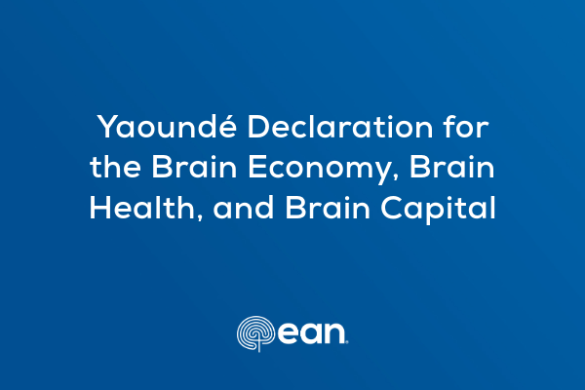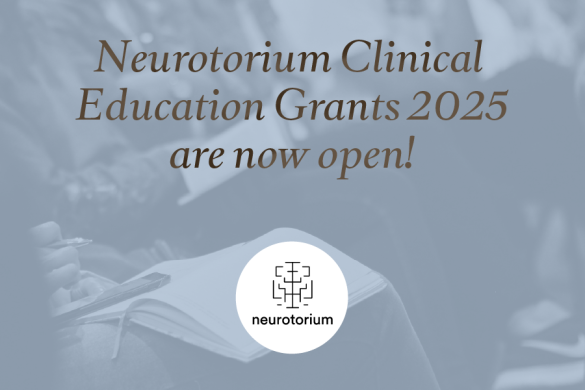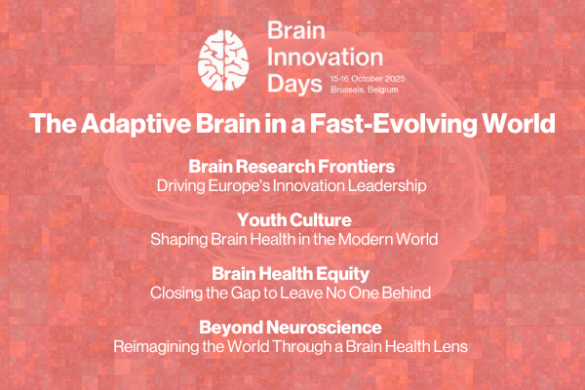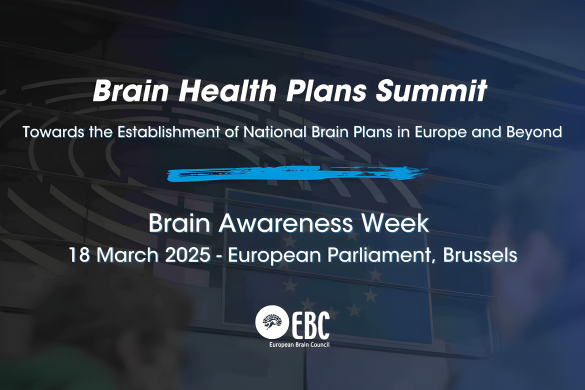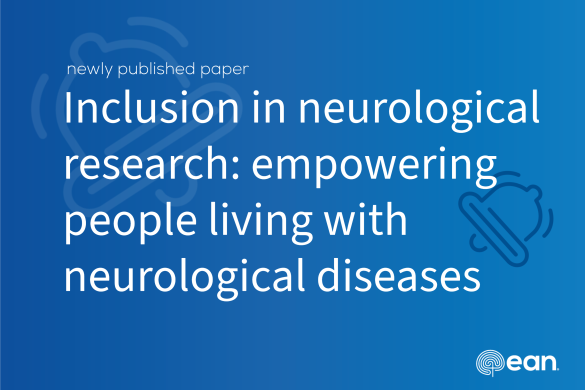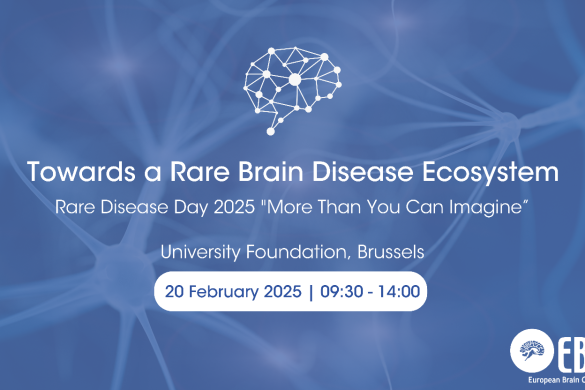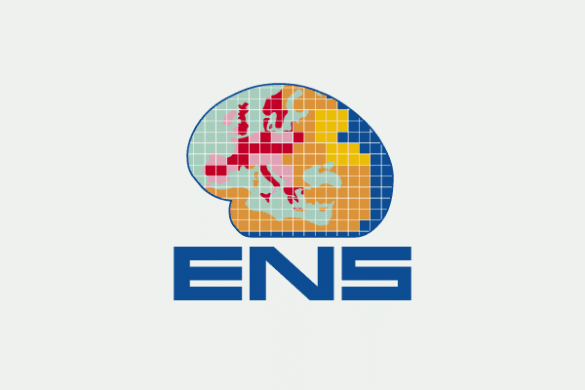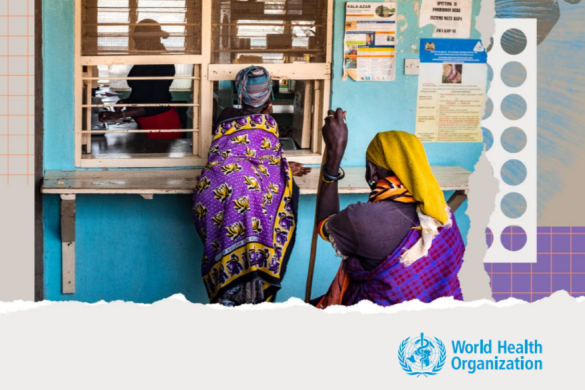Horizon Europe dividing European institutions, while outside actors push for brain to be included
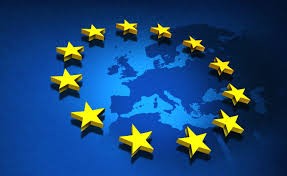 The European Parliament and the Council of the European Union are currently conducting their negotiations on Horizon 2020’s successor, the Horizon Europe EU research programme. The European Commission had proposed a budget of €94.1 billion while the European Parliament seeks €120 billion. The Council aims to allocate only €91 billion. The final budget will not be settled for another few months, and at the moment the negotiators are working towards an agreement on the content of the programme.
The European Parliament and the Council of the European Union are currently conducting their negotiations on Horizon 2020’s successor, the Horizon Europe EU research programme. The European Commission had proposed a budget of €94.1 billion while the European Parliament seeks €120 billion. The Council aims to allocate only €91 billion. The final budget will not be settled for another few months, and at the moment the negotiators are working towards an agreement on the content of the programme.
The latest negotiations from 14 March showed little progress. The main sticking point remained the European Parliament requesting to add a 25% bonus on top of all personnel costs paid to researchers in poorer member states who cannot afford cutting-edge research. The Council opposes this kind of measure overall. The institutions seem to agree, however, to give Member States control over the Programme’s strategic planning, but only if the European Parliament can have the final vote on the ‘missions’.
The Council adopted its position on 19 March, in which they recognize the rise of non-communicable diseases, the increased cases of cancer and the increase of mental illness, among others, as key health challenges in the EU. As a major improvement brought to the negotiating table, the Council seeks to facilitate ‘integrated solutions for self-monitoring, health promotion, disease prevention, and management of chronic conditions and multi-morbidities, including neurodegenerative and cardiovascular diseases’. Moreover, instead of providing a provisional list of ‘missions’ as it has been the case before, the Council now calls for the establishment of a so called ‘Programme Committee’ which will be involved in the preparation and life cycle of the missions and ensure alignment with the national contexts and already existing activities. Medical associations, including EAN partners, are raising awareness of brain diseases and are working towards the inclusion of Brain among these missions.
Members of the European Parliament are increasingly more open to discussing brain related topics. On 6 March, two events took place in the European Parliament bringing together policy makers, academia, industry and patient organizations to raise awareness and bring solutions to improve the daily life of people suffering from a neurological disease like migraine, Multiple Sclerosis, chronic pain as well as shed a light on how nutrition can influence mood disorders. EFNA, the European Federation of Neurological Associations, together other neurological societies, in the kind hosting of MEP Jeroen Lanaers (EPP, NL), met to discuss the challenge patients with chronic neurological disorders face in the workplace. On the same day, The European Brain Council, hosted by MEP Marian Harkin (ALDE, IE), held a reception Mood and Food: Exploring the gut-brain connection’. Experts and patients discussed how food can affect one’s mood and daily function.
An inter-institutional agreement on the budget and content of Horizon Europe research programme is unlikely to happen before the European Parliamentary elections at the end of May and the list of ‘missions’ will need to be decided upon by the end of 2019 to which many medical associations are pushing for brain to be on the list.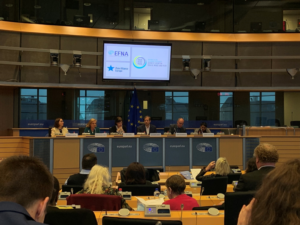
In the picture (from left to right): Francesca Centola, Project Officer, Eurocarers; Elena Ruiz de la Torre, Executive Director, European Migraine and Headache Alliance; Joke Jaarsma, President, European Federation of Neurological Associations; MEP Jeroen Lenaers (EPP – NL); Joop van Griensven, President, Pain Alliance Europe; Elisabeth Kasilingam, Managing Director, European Multiple Sclerosis Platform)





